Uninhibited by Religious Law, Tattoos Flourish in iran
WANA (Nov 2021) – When Westerners think of Iran and Iranians, chances are that the first images that come to mind are women covered up with hijabs and clothing with ambiguous silhouettes and maybe even turbaned clerics yelling into megaphones decrying Western values before chest-beating crowds, but the reality for many urban Iranians is a life not too dissimilar to a Western one, complete with the same trends and hobbies and activities. One such trend that has recently caught on is tattooing. PHOTO
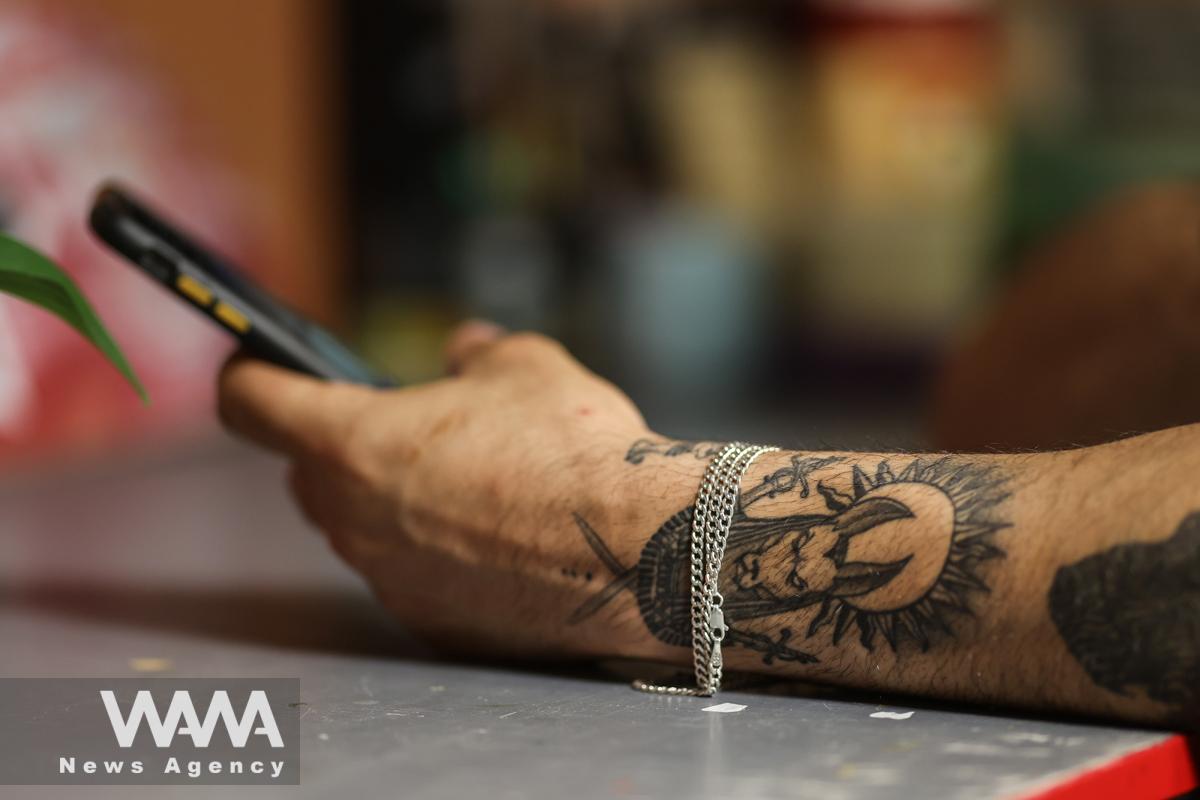
A tattoo is seen on the hand of Mohammad, an Iranian tattoo enthusiast, in a tattoo parlor in Tehran, Iran, November 3, 2021. Picture taken November 3, 2021. Majid Asgaripour/WANA (West Asia News Agency)
Tattoos are haram for Sunni Muslims, and so for the majority of the Sunni world, tattoos are prohibited. In Shia Islam, the main concern with tattoos was whether it prevented the “wudhu” or washing and cleaning of the body parts before prayer. Shia scholars and clerics in Iran, including the Supreme Leader himself, have stated that tattoos do not prevent this action. As a result, tattoos have no form of punishment in Iranian law and are as a result, not illegal.
Tattoos are very prevalent in Iran, especially in a city such as Tehran. Here, it’s not uncommon to see tattoos on people, and seeing one has become commonplace.
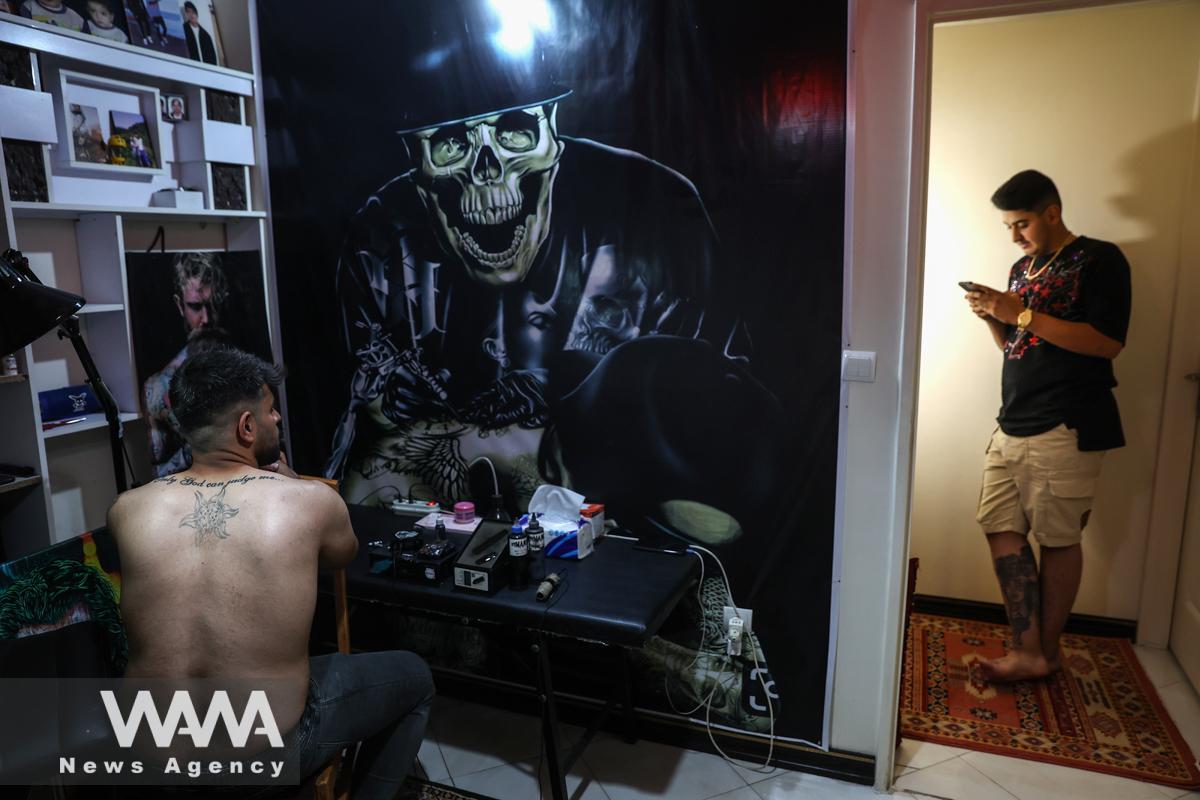
A tattoo is seen on the back of Amir, an Iranian tattoo enthusiast in Tehran, Iran, November 2, 2021. Picture taken November 2, 2021. Majid Asgaripour/WANA (West Asia News Agency)
Fariba is a tattoo artist in the east of Tehran. She has clients from every type of background and she thinks many of them don’t think about their tattoo decisions. She says: “I think in Iran, because people have experienced lack of compassion or have not been seen in society and many other things, tattoos make them be seen in some ways, whether it be in parties or in their friend groups. It puts all eyes on the person with tattoos and these alone can be the reason. In Iran many make uninformed decisions on their tattoos and these are the reasons.”
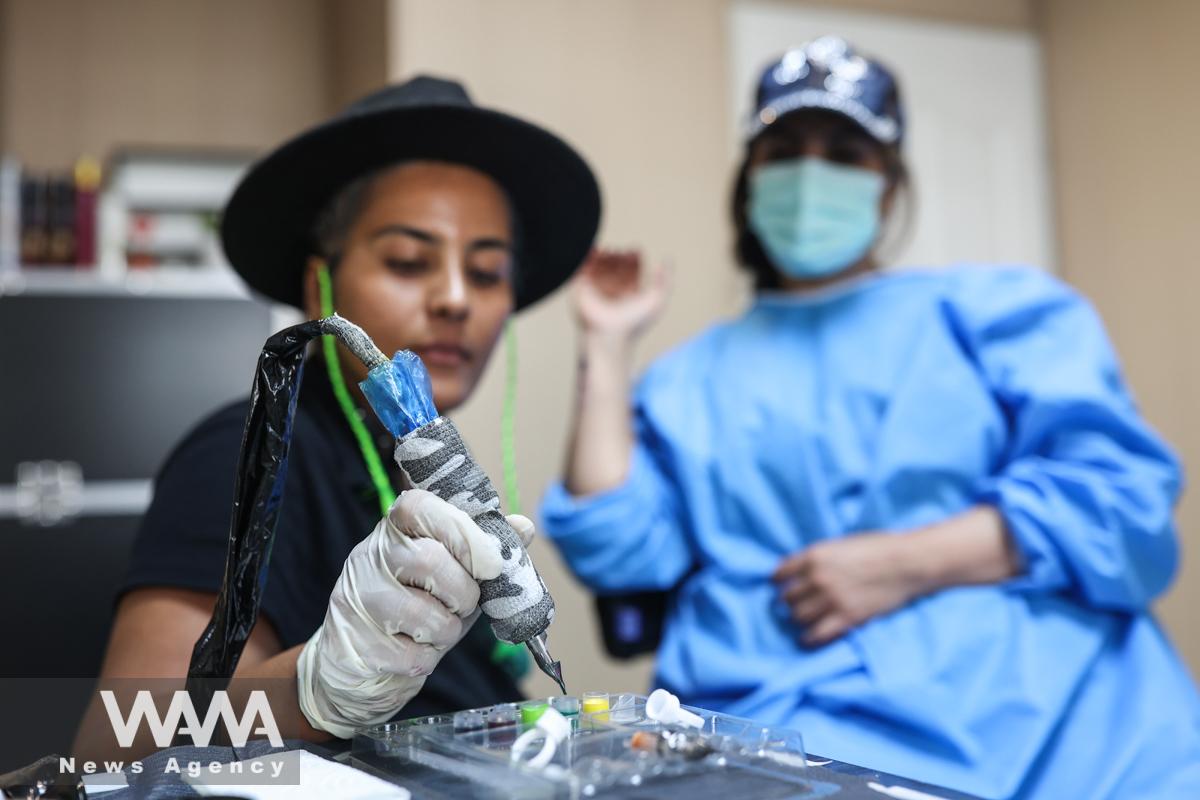
Fariba, an Iranian tattoo artist, holds a tattoo machine in her hand in a beauty salon in Tehran, Iran, November 2, 2021. Picture taken November 2, 2021. Majid Asgaripour/WANA (West Asia News Agency)
Fariba says the number of women looking to get tattoos has increased dramatically recently. “When I started working, about 70% of my customers were men because it still wasn’t accepted in society for women to have tattoos and women did not have the permission whether from their husbands or their parents,” she says. “But from one point onward it became really accepted that tattoos have no issue and it has no bad public image and that’s when the male and female clients became 50-50 and I started getting those clients and there still are women who want to get tattoos. I even think now there are more women than men who want to get tattoos.”
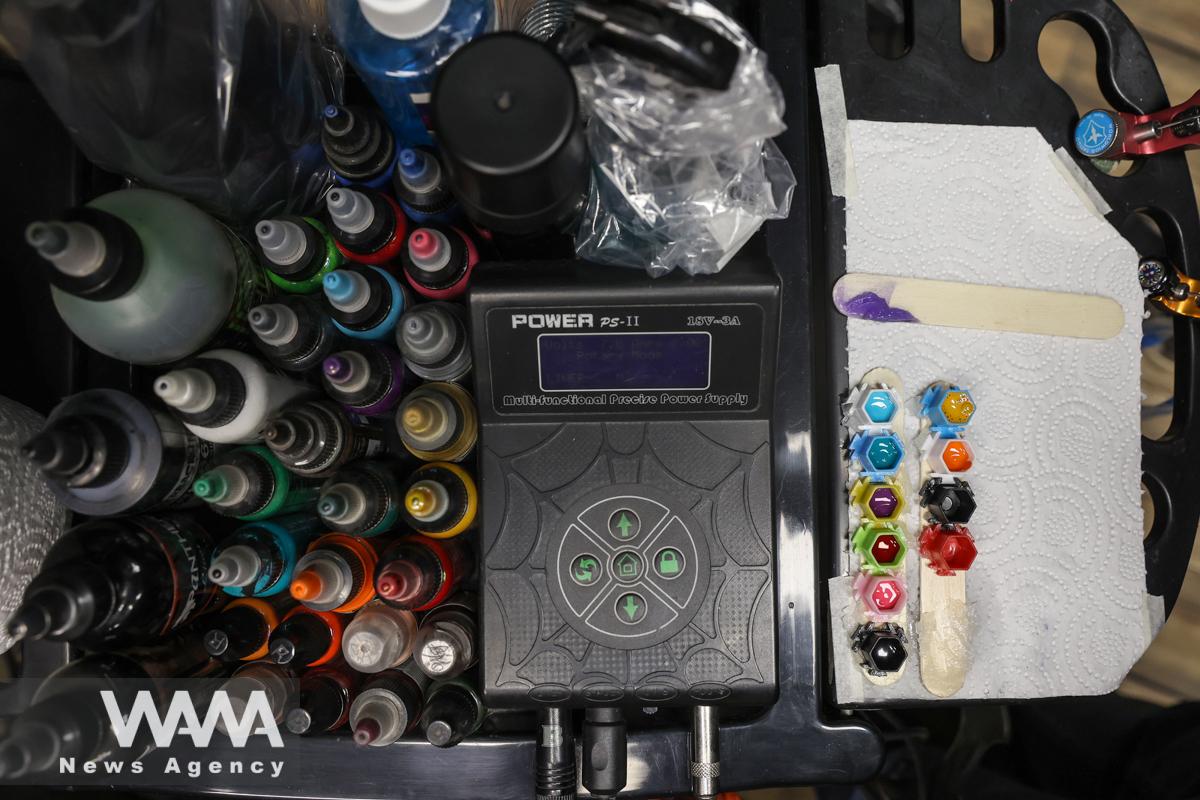
Tattoo inks used by Ramin, an Iranian tattoo artist, are seen in his tattoo parlor in Tehran, Iran, November 3, 2021. Picture taken November 3, 2021. Majid Asgaripour/WANA (West Asia News Agency)
Tattoo parlors in Iran are not licensed by the government. Though no punishment is set for tattoos, tattoo parlors have to operate out of beauty salon or personal homes in a grey area of legality where the act is legal but the establishment is not.
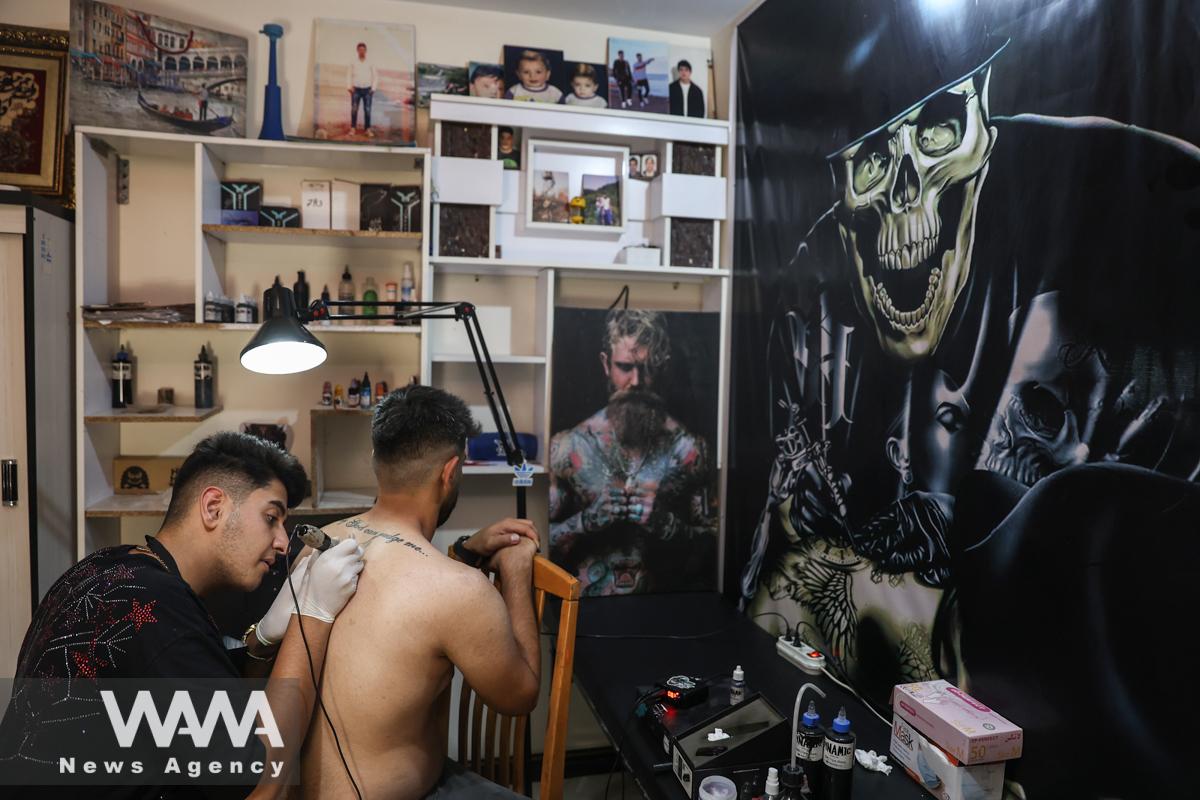
Mersad, an Iranian tattoo artist, tattoos on his client’s back at his home in Tehran, Iran, November 2, 2021. Picture taken November 2, 2021. Majid Asgaripour/WANA (West Asia News Agency)
Further south in Tehran, Mersad operates a tattoo parlor out of his home. The 21-year-old’s clients come from the less affluent parts of Tehran compared to Fariba’s. He agrees that the number of women has increased. “Most of my clients are women. The number of women has increased a lot,” he says.
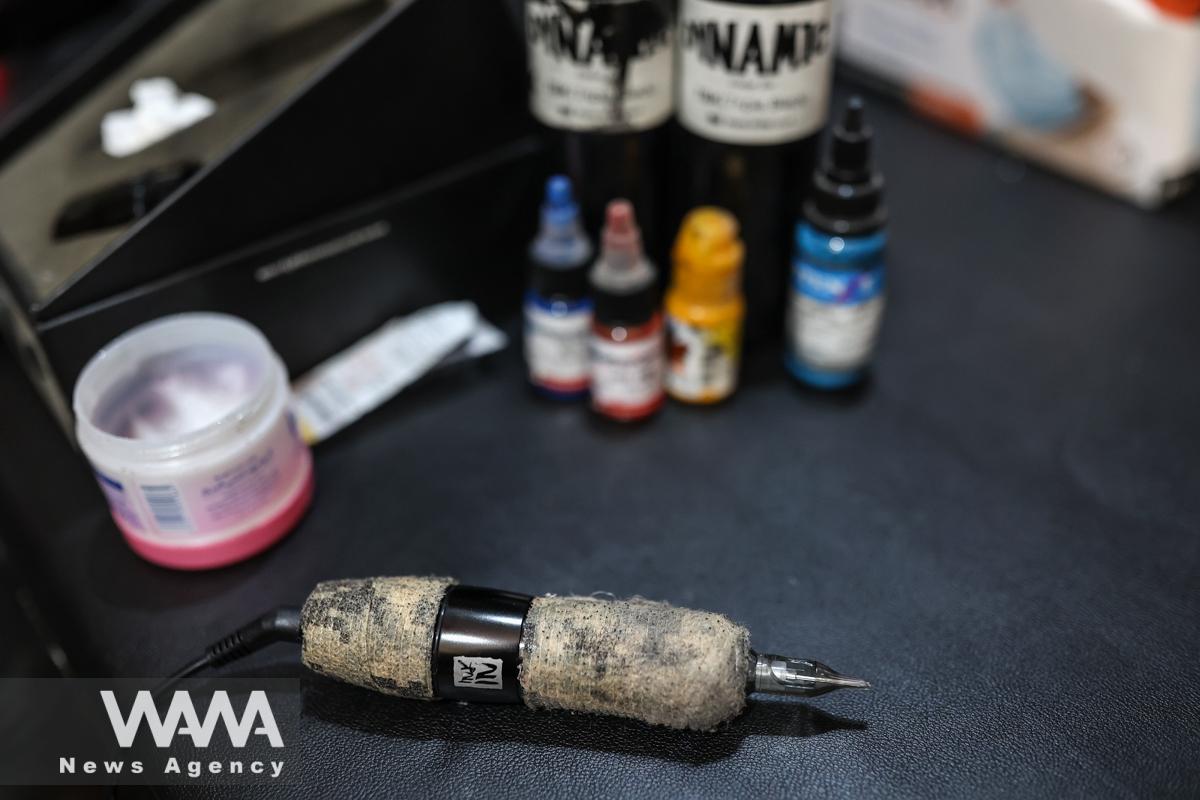
A tattoo machine is seen in the house of Mersad, an Iranian tattoo artist in Tehran, Iran, November 2, 2021. Picture taken November 2, 2021. Majid Asgaripour/WANA (West Asia News Agency)
Mersad speaks about only ever facing comments as a form of hindrance to his profession. When asked if he’s ever gotten in trouble for his work, he says: “Yes, I did a sort of political design on someone. One or two people messaged me, I don’t know who they were, but they messaged me and they told me to delete my post and not to repeat things like that again. That’s about it, otherwise nothing too severe.”
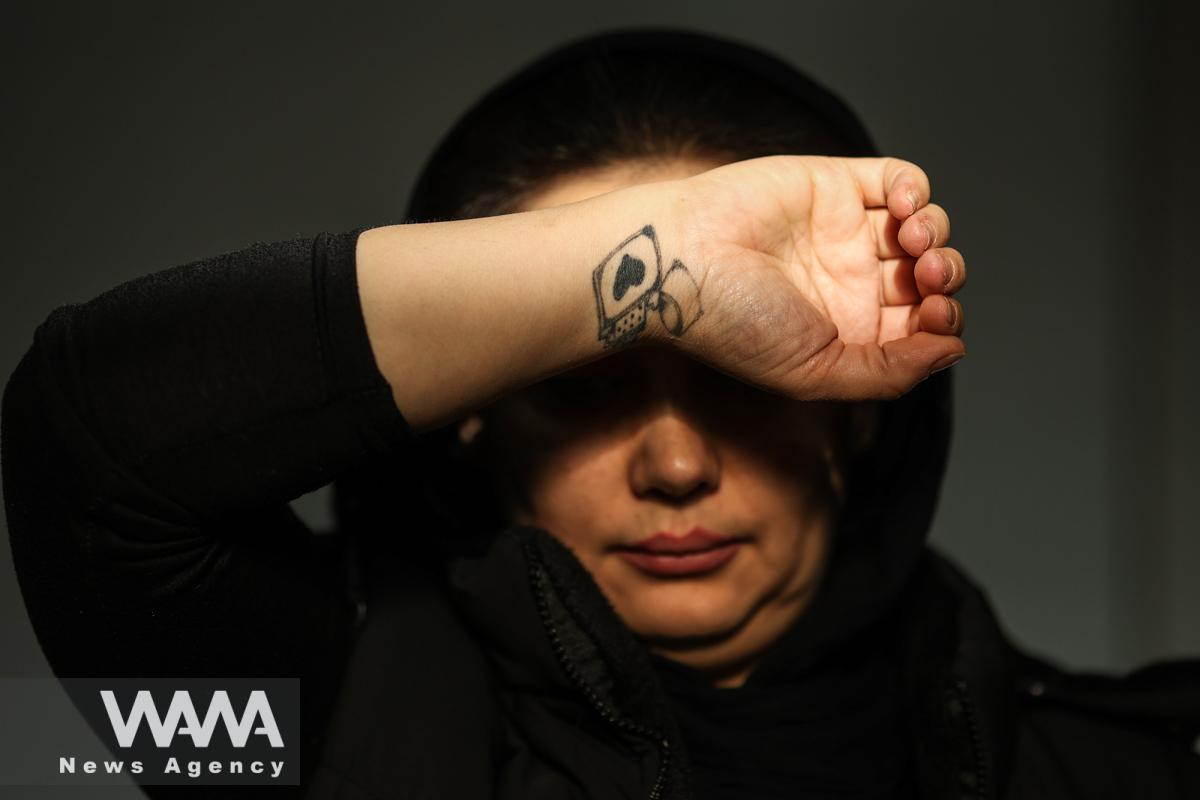
An Iranian woman shows a tattoo on her wrist in Tehran, Iran, November 2, 2021. Picture taken November 2, 2021. Majid Asgaripour/WANA (West Asia News Agency)
Iran is still an Islamic country, and many people still have reservations about tattoos. As much as the younger generation has gravitated towards the act, many in the older generations view them as outrageous. This can in turn limit accessibility to jobs and social circles for many in Iran. WANA visited a gym to talk with some youth with tattoos. Amir, a 25-year-old tattoo enthusiast, said: “The first tattoo that I got on my upper arm, I got with my dad, but when I got the rest of them, everyone was opposed.”
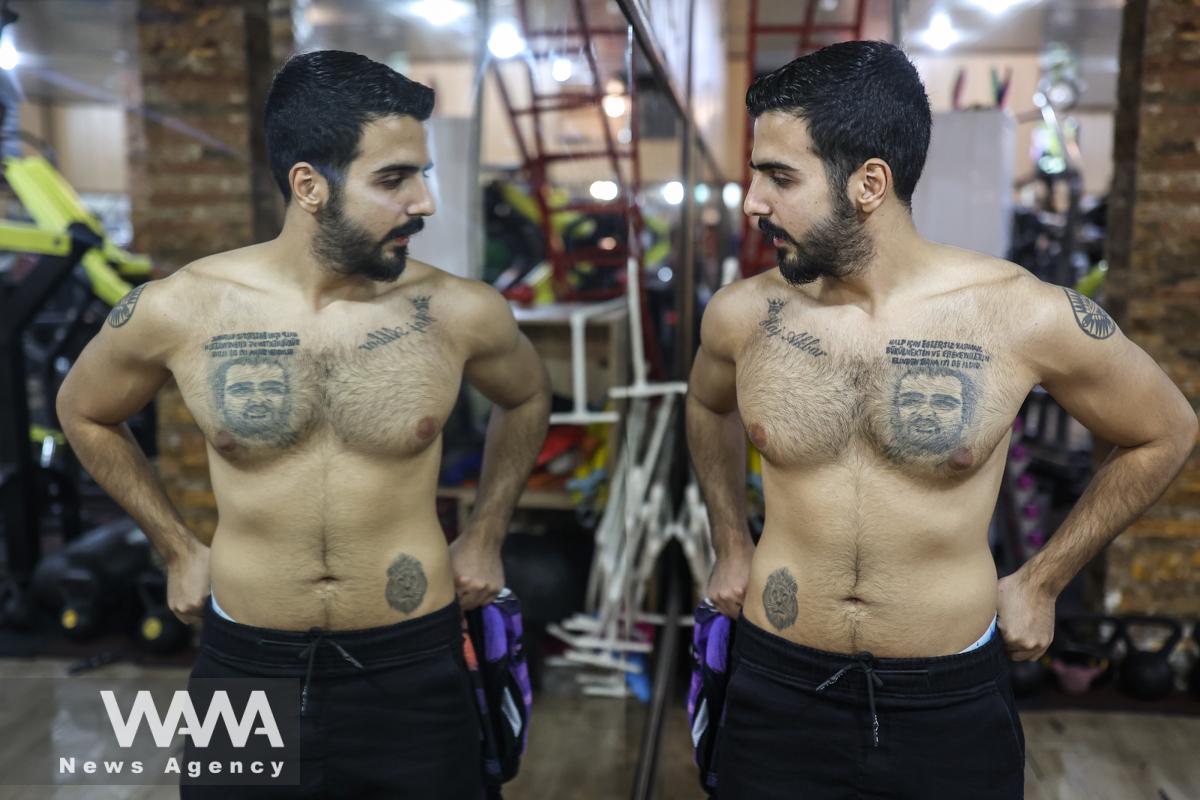
A tattoo is seen on the chest of Ali, an Iranian tattoo enthusiast, in a gym in Tehran, Iran, November 6, 2021. Picture taken November 6, 2021. Majid Asgaripour/WANA (West Asia News Agency)
Another gym-goer, Ali, said that he had “seen it be important to not have any tattoos, in some sports and for some jobs and some families for marriage,” but that he himself had not been subjected to this sort of treatment and has actually been more well-received in some circles.
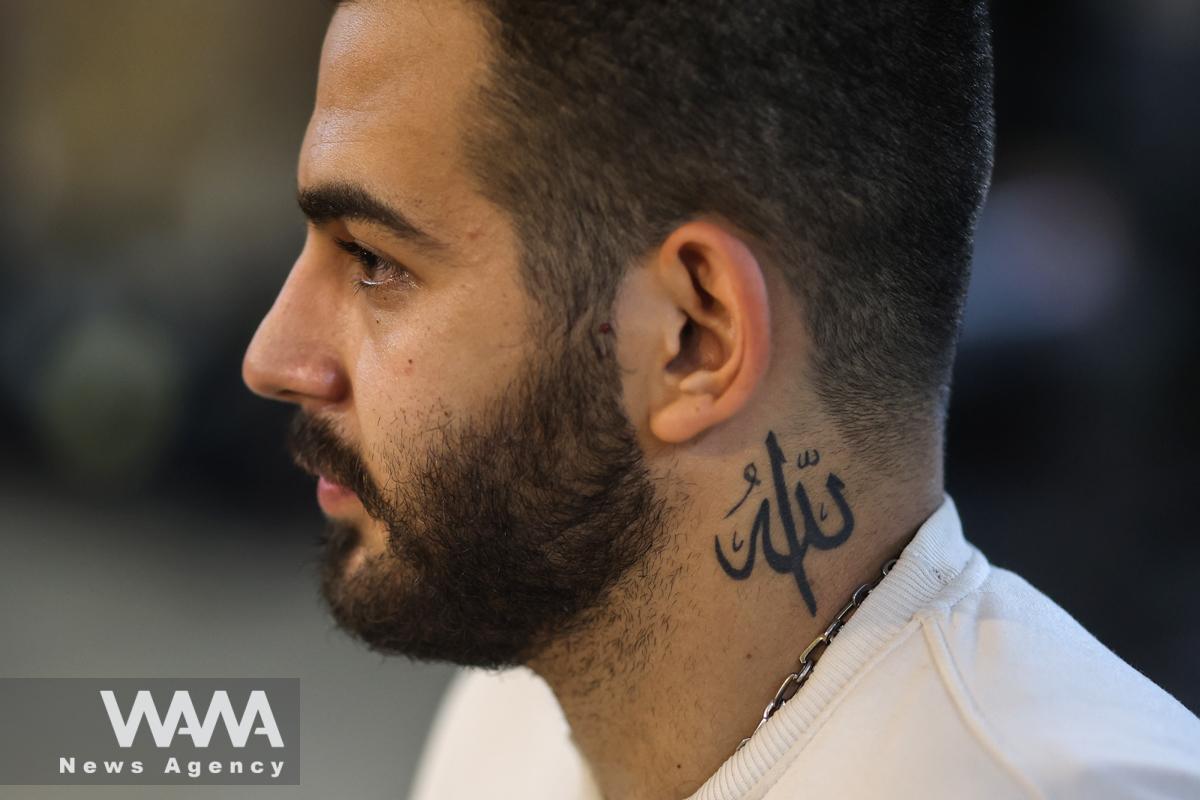
A tattoo is seen on the neck of Amir Hossein, an Iranian tattoo enthusiast, in a gym in Tehran, Iran, November 6, 2021. Picture taken November 6, 2021. Majid Asgaripour/WANA (West Asia News Agency)
Many trends in Iran follow those in the West, with some hopping on the foreign bandwagons simply to have done so. In a rare instance of an Islamic country where tattooing is not illegal, Iran seems to have become a hotbed for this trend to flourish. As the tattoo artists we spoke with say, the trend seems to only be getting stronger, and we can most likely expect the trend to be here to stay in many of the country’s metropolises.
- Mohammad, an Iranian tattoo enthusiast, poses for a photo at his home in Tehran, Iran, November 3, 2021. Picture taken November 3, 2021. Majid Asgaripour/WANA (West Asia News Agency)
- Mersad, an Iranian tattoo artist, tattoos on his client’s back at his home in Tehran, Iran, November 2, 2021. Picture taken November 2, 2021. Majid Asgaripour/WANA (West Asia News Agency)
- Mohammad, an Iranian tattoo enthusiast, poses for a photo at his home in Tehran, Iran, November 3, 2021. Picture taken November 3, 2021. Majid Asgaripour/WANA (West Asia News Agency)
- Ramin, an Iranian tattoo artist, tattoos a design on the leg of an Iranian man in a tattoo parlor in Tehran, Iran, November 3, 2021. Picture taken November 3, 2021. Majid Asgaripour/WANA (West Asia News Agency)
- A tattoo is seen on the leg of Amir Hossein, an Iranian tattoo enthusiast, in a gym in Tehran, Iran, November 6, 2021. Picture taken November 6, 2021. Majid Asgaripour/WANA (West Asia News Agency)
- A tattoo is seen on the leg of Amir Hossein, an Iranian tattoo enthusiast, in a gym in Tehran, Iran, November 6, 2021. Picture taken November 6, 2021. Majid Asgaripour/WANA (West Asia News Agency)

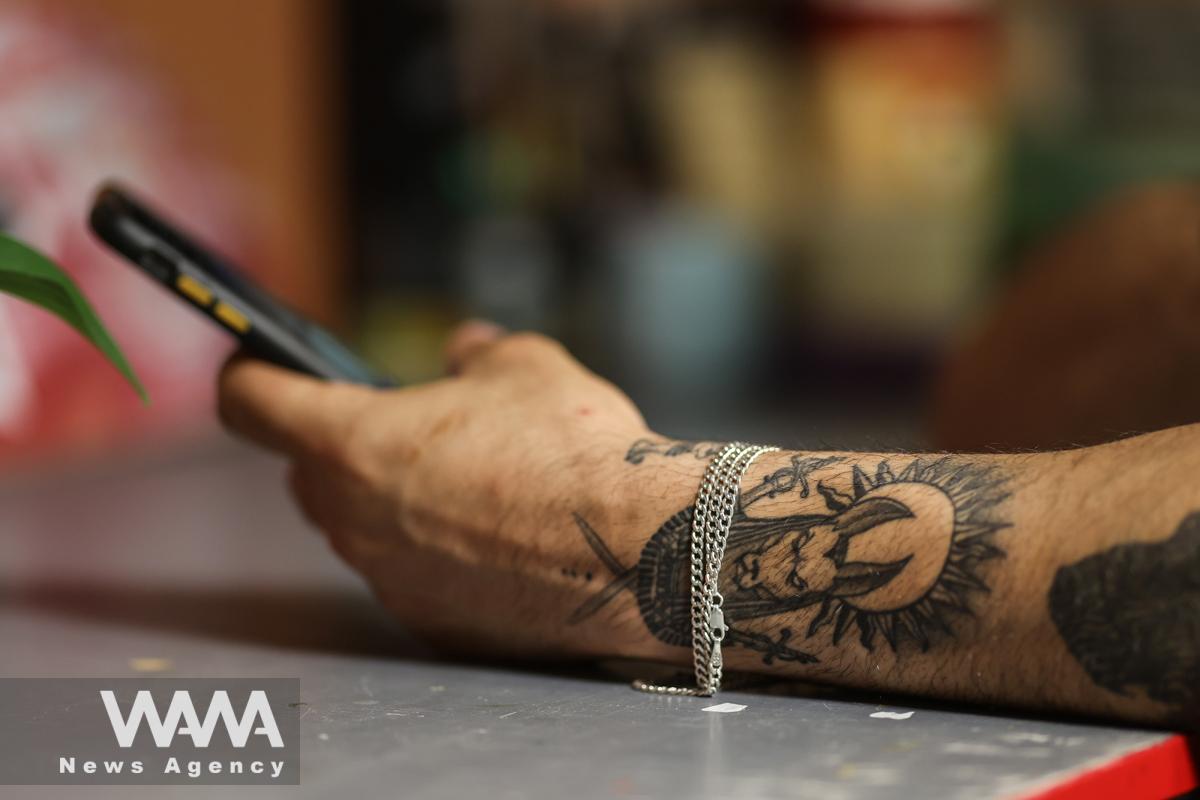
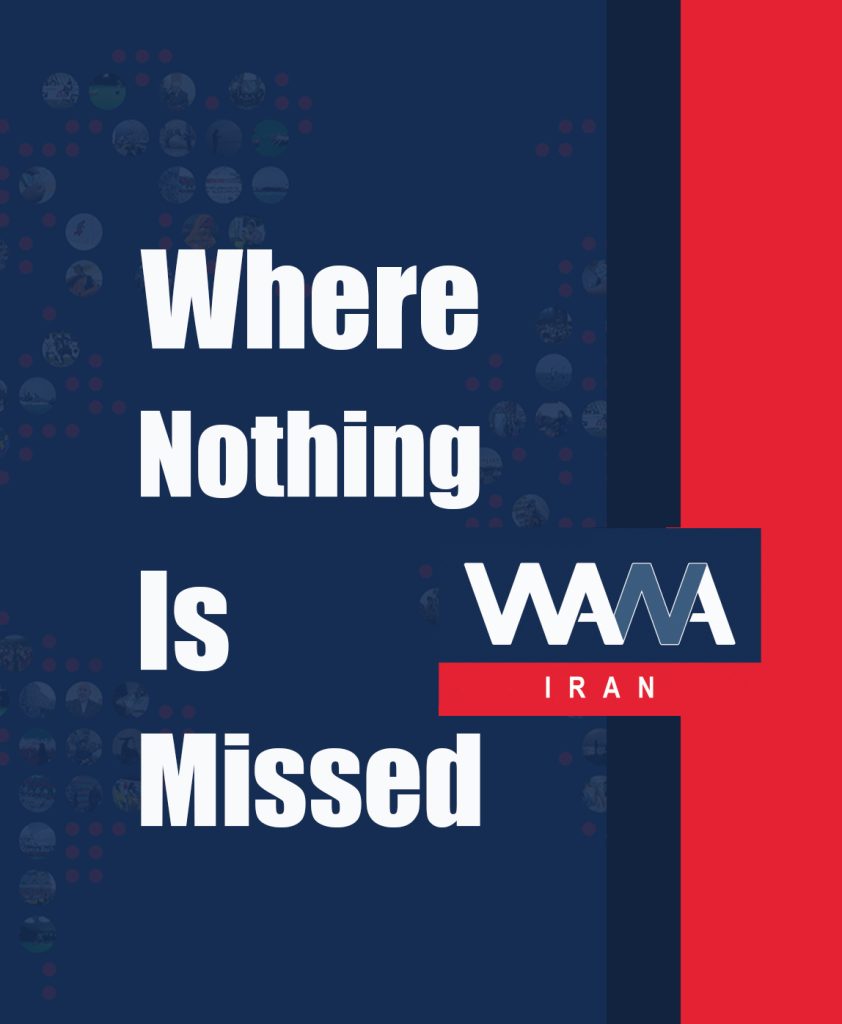
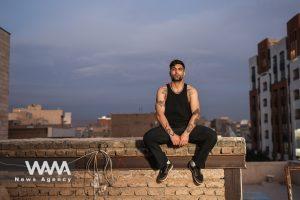
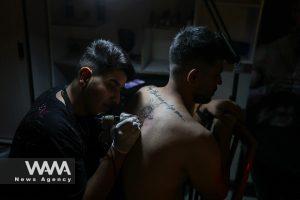

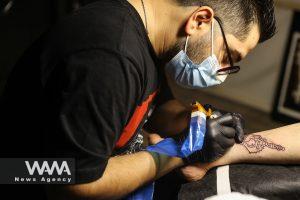

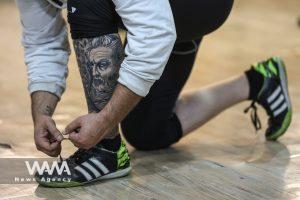










User comments